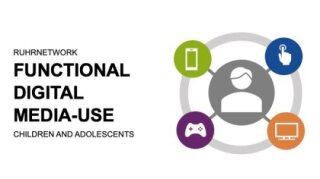Teachers’ beliefs about the determinants of students’ academic achievement
How well students do in school depends on many factors. Also teachers are aware of this. We study the importance of teachers' beliefs about the determinants of school success in everyday school life. Can every child be good at school or do you need a special aptitude? We study the relation between the teachers' beliefs and their behavior and occupational well-being as well as the motivational and emotional development of their students. The latter is supported by a research grant from the Deutsche Forschungsgemeinschaft (DFG).
Further, we pay attention particularly to vulnerable groups of students and differences between subjects. For example, we were able to show that low-achieving students are less intrinsically motivated in math if their math teacher believes that children need an innate ability to be really good at math (Heyder, Weidinger, Cimpian, & Steinmayr, 2020 ; Learning and Instruction). For our research, we use both secondary data analysis (e.g., of the National Education Panel Study NEPS) as well as experimental study designs and mixed methods approaches.
Functional use of digital media in children and adolescents
Digital media are an important part of the children’s and adolescents’ lives in Germany. While dysfunctional media use has often been the focus of attention in the past due to its clinical relevance, the state of research on functional use and its promotion is still insufficient. As part of the MERCUR-funded network "RuhrNetwork for Functional Digital Media-Use in Children and Adolescents", we work with Stephanie Antons, Magnus Liebherr (University of Duisburg-Essen, cognitive psychology) and Julia Brailovskaia (Ruhr University of Bochum, clinical psychology) on a conceptual understanding of functional media use, explore its psychological mechanisms, and develop measures to promote it. Our research aims to contribute to making more use of the chances and possibilities offered by digital media above and beyond offering prevention programs to protect against the risks of a dysfunctional media use. A special feature is the interdisciplinary and site-wide approach of the network as well as the focus on the added value that digital media can offer for children’s and adolescents’ lives.
https://www.uni-due.de/functional-media-use-network/index.php !
